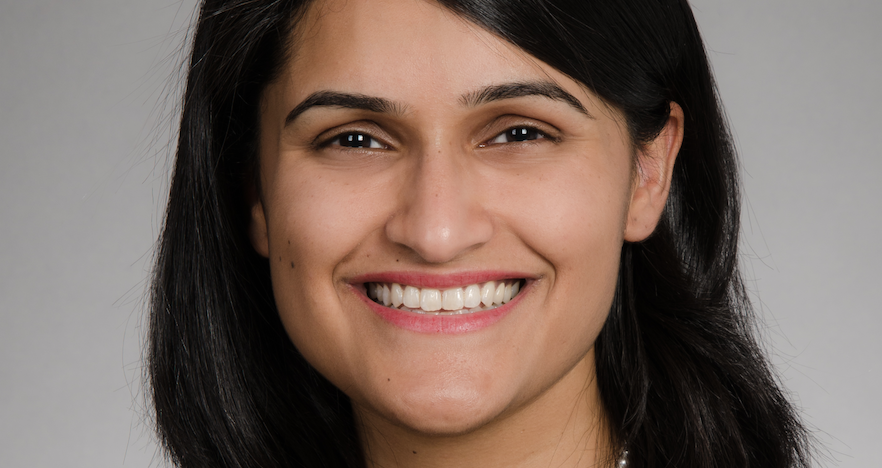The past few weeks have been challenging. Many dentists went back to work after a tough two month-break, dealing with PPP loans, concerned team members, and (shortage of) PPE availability. Dentistry began to appear bleak to a lot of us.
Dr. Deshpande
Then, came the death of George Floyd that shook us to our core. Those of us living in big cities, saw massive protests against racial injustice on our streets for the first time in years. In Seattle, we have been witnessing protests related to police brutality and the toll it has taken on our Black community daily since May 30.
I immediately recognized, that it was difficult to discuss this issue openly. Should dentists be addressing the protests and their cause? Is it OK to ignore it and be conducting business as usual? How do we talk about something that makes us all very uncomfortable?
When I asked myself these questions, I realized there are no easy answers. Luckily, a dear colleague roped me into a related conversation with few other women dentists and brought in a facilitator. Dr. Yvette Weir, an Afro-Canadian general dentist based in the U.S., joined our meeting to guide a discussion related to #blacklivesmatter.
The conversation stuck with me, because for the first time, I received actionable information on the topic. Following are excerpts from that conversation and a short interview that followed.

Dr. Weir
Q: What is #blacklivesmatter? Why is it important for health care professionals to support this? How can we educate ourselves about it?
Dr. Weir: #Blacklivesmatter is an international, grassroots human rights movement started in 2013 to address issues of violence and widespread racism affecting the black community. As leaders in our offices and neighborhoods, dentists stand in an important position to lend support to this cause. We can educate ourselves about this issue by actively seeking information, listening (our staff and patients can be a great natural source of information) and by becoming a part of social groups promoting awareness and anti-racist activities.
Q: How can dentists talk about this with our team members, patients and community at large?
Dr. Weir: Dentists can be intentional during this time by setting aside an extended huddle or lunch and share for an in-depth discussion. If the office is not diverse, or if the dentist is not comfortable, he/she, could consider bringing in a speaker/facilitator to guide the process. They should understand that not all persons might be comfortable or even find this necessary. This is where leadership of the dentist becomes critical. There are certainly magazines, books and authors that offer strong voices in the struggle, but I would encourage at first getting feelings and reactions from the source – listen to your staff and patients – share black stories. First, seek to empathize and understand the POV of the black community.
Q: How can we support our students and fellow colleagues at the dental school? What can we teach to all of our students, going forward?
Dr. Weir: One of the greatest needs of minority students in dental school is a sense of community. They hope for others to see, acknowledge and support their unique challenges. At times it has been said that the push to recruit the best and brightest is there but the support afterwards is not. All dental schools would benefit from having a diversity director or someone who acts in that capacity to assist in the transition of incoming students and even beyond the D1 year.
Q: By saying nothing and not addressing this topic in a conscious way, what does it say about dentists?
Dr. Weir: By remaining silent, we are speaking volumes. We are kidding ourselves if we think this is just an issue related to (fill in the blank) persons who are far removed from our own world and lives. Racism perpetuated to any one group by a ‘dominant’ race is an affront to all races. History has shown that at various points in time other groups not deemed ‘elite’ also suffered – Irish, Jews, Italians, Eastern Europeans, Asians and Native Americans are examples of this. We should all aim to make this world a better place now and for future generations, by teaching, practicing and abolishing racism wherever it rears its ugly head – like, right now.
Q: Apart from addressing it at work and school, how else can we support the black community?
Dr. Weir: 1. Adopting/sponsoring a student, class or even a school from a disadvantaged neighborhood.
- Make hiring for diversity a practice decision.
- Creating a scholarship at a local high school.
- Volunteering in the community as a practice.
Dr. Sampada Deshpande is a general dentist practicing in Seattle. A foreign trained dentist from India, she completed her DDS equivalency from the University of Washington in 2018. Sampada is a founding member of the New Dentist Business Study Club and a contributing member of her local Spear Study Club. Originally from Dubai, she looks forward to her weekly Bollywood dance class, hiking the beautiful PNW with her husband, and reading books on Finance & Management. You can reach her directly @dr.deshpande on Instagram.
Dr. Weir is a general dentist and Howard Alum (class of ’92). She has owned two practices and has always been patient centered and public health focused. She enjoys practicing in a holistic manner and working with fearful patients and children. She is a fitness and health enthusiast, and also loves to paint, coach and give motivational presentations. You can reach her on Instagram @Coaching4docs for questions.


